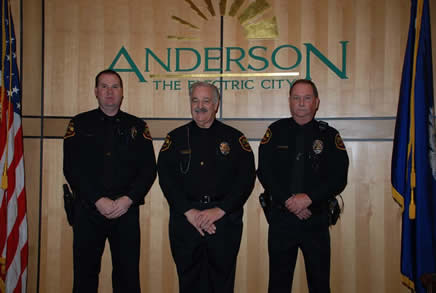Crime Stoppers
What Is CrimeStoppers?
Crime Stoppers began in Albuquerque, New Mexico in September of 1976. Members of the local community, in partnership with the media and law enforcement, began an effort to provide crime-solving assistance to law enforcement.
A cash reward was offered to anonymous persons who telephone the Crime Stoppers hot line with information which led to the arrest and indictment of the person(s) responsible for felony offenses.
The Crime Stoppers program has enjoyed great success boasting an average conviction rate of 95% on cases solved by Crime Stoppers’ tips. The Crime Stoppers programs worldwide have solved over a half a million crimes and recovered over 3 billion dollars worth of stolen property and narcotics.
Today, there are over 1,000 Crime Stoppers programs in the United States, Canada, United Kingdom, Australia, South Africa, Bahamas, British West Indies, Micronesia, and other nations.
Three Essential Elements Make Up a Crime Stopper Program
THE COMMUNITY
Citizens are responsible for forming a Crime Stoppers non-profit corporation, whose directors establish policy, determine amount and method of reward payments, work closely with the police and the media and generally oversee the program. The directors are also responsible for fund raising, and all volunteer service. Tax money is not sought.
THE MEDIA
Crime Stoppers methods, objectives, successes and phone numbers are publicized on a regular basis by the media.
THE LAW ENFORCEMENT AGENCIES
A special Crime Stoppers phone with a well publicized number is provided to the community. Callers are assigned a special Code number. If, after the investigation, the information leads to an arrest, the caller is entitled to a reward.
Procedure for Reporting Tips and Payment thereof:
Tips must be received via the Crime Stoppers’ tip line 1-888-CRIME-SC. Tips may also be entered online through the Crime Stoppers’ website. Once entered into the CAD system (Computer Aided Dispatch), a case/tip number will be assigned.
A Law Enforcement Officer may call in a tip or enter a tip online on behalf of a tipster/informant.
If the tipster/informant is interested in a reward or in reporting additional information, he/she is told to call back periodically with the case/tip number.
If an arrest is made based on the tip, the tipster/informant will be told when and where to pick up the reward check. When picking up the reward check the tipster/informant will only have to identify themselves by the tip/case number that was assigned to them. This will enable the tipster/informant to remain anonymous.
The amount paid for a tip is based on the nature and severity of a crime and will be determined by the CrimeStoppers executive board members.

